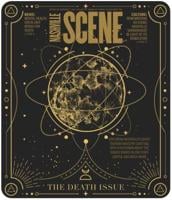Time was, country music was “music for grown-ups.” But even within a tradition where couples often struggle to earn a living, to raise kids, to stick together, the music hasn’t heard anything like Rodney Crowell’s new album. On Fate’s Right Hand, Crowell tackles what is perhaps the most adult—and human—problem of all: He wants to figure out “what it is I have to offer to this world.”
Crowell isn’t the first 53-year-old to confront that particular question—that is, to undergo a midlife crisis. But Crowell’s version of middle-age crazy sidesteps the condition’s stereotypical symptoms—a yen for sports cars, toupees and affairs with preposterously big-breasted blondes—to stare down more substantial demons. “It’s time to go inward, take a look at myself, make the most of the time I’ve got left,” he gulps at one point. “Would you believe that I’m afraid?”
Crowell’s last album, his career-best The Houston Kid, revealed what happens when youthful dreams crash into the wall of poverty, and how even bigoted, violent pasts don’t cancel out the possibility of redemption. By album’s end, Crowell had embraced a powerful yet demanding response to his painful biography: “I know love is all I need. And that’s all I know.”
Cue Fate’s Right Hand, which explores the volatile mixture of ambition and insecurity that keeps even the best of us from loving as often and as well as we might. The sound here is mostly a match for Houston’s shimmering, rootsy pop (Crowell has gathered most of the same pickers), albeit with more of an adult contemporary feel. Fate is light on the troubadour narratives of its predecessor and heavy on singer-songwriter self-examination.
Which shouldn’t be dismissed as petty or insular navel-gazing—at least not entirely, though there is a self-help vibe here that means Crowell is likely only preaching to the choir and turning off many others. When the singer looks at himself in the mirror, during the funky country-rock of “The Man in Me,” he sees crooked teeth and hands like hooks, but he also sees self-doubt, stubbornness, anxiety, hate, pride—the same grim image any of us spy when we rub the ego from our eyes. Most of all, he spies an unhelpful resistance to change. “The man in me don’t want to know nothing about that,” he admits, while Michael Rhodes mocks his stubbornness with bass lines that either sound like snickering or a thumb thwacking Crowell in the forehead.
Along the way, Crowell drops in a zinger to connect the personal psychology to public affairs. (On Ken Starr and Bill Clinton: “Spending $40 million just to give the man a bird.”) But it’s the examination of the private life he’s most interested in, and his greatest insight may be the simple reminder that the complexity of a life is too messy to capture in any one aphorism or chorus. That’s why in one moment he can rejoice that he’s “Still Learning How to Fly”—“I’ve got a past like a broken wing, but you ain’t seen anything”—while in the next he’s resigning himself to being gloriously “Earthbound.” “Like a ship run aground, think I might stick around,” he grins. Because, really, what else is there to be done?




